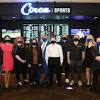Long-acting antibody demonstrates promising efficacy in infant RSV

New real-world evidence from a long-term follow up study adds to evidence of the high efficacy of Beyfortus in infant RSV.
Credit: rarrarorro / Shutterstock.com
Interim results of an ongoing study published in The Lancet have reported that Beyfortus (nirsevimab) reduced respiratory syncytial virus (RSV) hospitalisations by 82 percent in infants under six months, compared to infants who received no RSV intervention.
Sanofi noted that as a long-acting antibody, Beyfortus has been shown to provide rapid protection, helping to prevent lower respiratory tract disease caused by RSV without the immune system needing activation.
These findings, from the first RSV season after introduction of Beyfortus, are part of NIRSE-GAL, a three-year follow-up study in Galicia, Spain. It is being conducted after it was included in the Galician immunisation schedule, following an agreed collaboration between the Galician government and Sanofi.
“Galicia provides the first population-based real-world evidence of the impact of nirsevimab to prevent RSV disease in infants”
“Galicia provides the first population-based real-world evidence of the impact of nirsevimab to prevent RSV disease in infants, showing a reduction by almost 90 percent in the number of hospitalisations due to this virus when compared with several previous RSV seasons,” stated Federico Martinon Torres, Head of Pediatrics, Hospital Clínico Universitario Santiago, Spain and principal investigator of NIRSE-GAL study.
“The scale and speed of impact seen after Beyfortus’ introduction demonstrates the strength of all-infant immunisation strategies against RSV in babies,” summarised Thomas Triomphe, Executive Vice President, Vaccines, Sanofi.
About the three-year follow up study
NIRSE-GAL aims to measure the impact of Beyfortus on hospitalisations due to:
- RSV
- All-cause lower respiratory tract disease
- Severe lower respiratory tract disease caused by RSV
- All-cause lower respiratory tract disease hospitalisations
- All-cause hospitalisations among infants born during the RSV season
- Infants under six months of age at the start of the season
- Children six to 24 months old who are vulnerable to severe RSV disease at the start of the season.
Further real-world evidence of Beyfortus’ efficacy
In addition to this new study, several other real-world studies have offered “consistent” positive evidence of Beyfortus’ efficacy, according to Sanofi.
For instance, a single dose of Beyfortus was shown to prevent hospitalisations due to RSV by 90 percent in in babies immunised below eight months old. This is based on an interim analysis of 2023-24 surveillance data published in the US Centers for Disease Control and Prevention’s (CDC) Morbidity and Mortality Weekly Report (MMWR).
Additionally, a study from Catalonia, Spain, pre-printed in The Lancet showed reductions of 87.6 percent and 90.1 percent in hospital and ICU admissions for RSV, respectively, in babies born before the start of the RSV season, who were eligible to receive Beyfortus. This was compared to patients who received no intervention.
Positively, Sanofi explained that expansion of the Beyfortus manufacturing network is “progressing well”. Following a development and commercialisation deal agreed by the parties in 2017, the expansion will enable Sanofi and AstraZeneca to “more than triple manufacturing capacity”.
Related topics
Biologics, Biopharmaceuticals, Clinical Development, Clinical Trials, Data Analysis, Drug Development, Drug Safety, Immunisation, Industry Insight, Research & Development (R&D), Therapeutics


 New Zealand
New Zealand Argentina
Argentina  Australia
Australia  Austria
Austria  Brazil
Brazil  Canada
Canada  Germany
Germany  Ireland
Ireland  Italy
Italy  Malaysia
Malaysia  Mexico
Mexico  Poland
Poland  South Africa
South Africa  United Kingdom
United Kingdom  United States
United States 






















